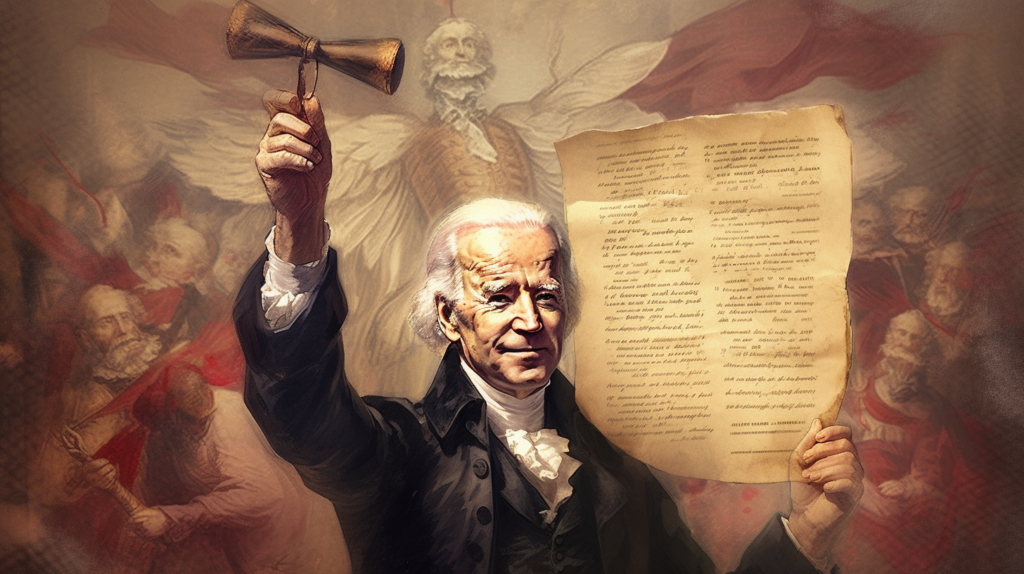
The United States is currently facing a complicated and potentially dangerous situation as Congress has yet to agree on raising the debt ceiling. Since 1917, the debt ceiling has been adjusted regularly, allowing the government to increase the money it can borrow to fund its operations. The ceiling currently stands at $31.4 trillion, and if it’s not raised in time, the country may be forced into defaulting on its debt.
Let’s explore what it means to default, why lawmakers are hesitant to raise the debt ceiling, and how the president could use the 14th Amendment to prevent default and reassure the public.
What Does It Mean to Default?
The U.S. government funds its operations through tax revenue and borrowing. When Congress approves government spending that exceeds tax revenue, the Treasury must borrow money by issuing bonds and other securities. These securities are purchased by investors, banks, and foreign governments, who lend money to the government with the expectation of earning interest.
The government’s ability to borrow money cheaply is critical to smoothly functioning. However, if the government cannot pay its debts as they come due, it will be forced to default. Default occurs when the government fails to pay its outstanding debt obligations. This would be a catastrophic event for the United States, as it could trigger a global financial crisis and cause significant harm to the US economy and the financial markets.
Why Are Lawmakers Hesitant to Raise the Debt Ceiling?
Raising the debt ceiling has become an increasingly contentious issue in recent years. Some lawmakers argue that the government should not continue to borrow money to fund its operations and that the debt ceiling should be lowered or even abolished. Others argue that raising the debt ceiling is necessary to prevent default and fund important programs and services.
However, lawmakers are hesitant to raise the debt ceiling because they are concerned about its impact on the country’s fiscal health. If the government continues to borrow money at the current rate, the national debt will continue to grow. This, in turn, could lead to long-term economic problems such as inflation and higher interest rates on government debt.
Additionally, raising the debt ceiling typically requires bipartisan support in Congress. In recent years, political polarization in the United States has made it difficult for lawmakers to agree on matters related to fiscal policy, leading to tense negotiations and last-minute compromises.
How Could the President Use the 14th Amendment to Prevent Default?
The 14th Amendment to the U.S. Constitution includes a provision that could give the president the authority to prevent default and reassure the public during a debt ceiling crisis. Section 4 of the 14th Amendment states, “The validity of the United States public debt, authorized by law, including debts incurred for payment of pensions and bounties for services in suppressing insurrection or rebellion, shall not be questioned.”
Many legal scholars argue that this provision could give the president the authority to order the Treasury to continue to make payments on the country’s debts, even if the debt ceiling is not raised. In other words, the president could use the 14th Amendment to argue that the government is legally obligated to pay its debts, regardless of whether the debt ceiling has been increased.
However, there is debate about whether the president has the constitutional authority to use the 14th Amendment in this way. Some argue that this interpretation would give the president too much power over the country’s fiscal policy and would conflict with Congress’s constitutional authority to oversee government spending.
The current situation surrounding the debt ceiling is a reminder of the complex and sometimes fraught nature of the U.S. government’s finances. If Congress fails to raise the debt ceiling in time, the country could be forced into default, leading to dire consequences for the economy and the financial markets. While lawmakers debate the best way to address the debt ceiling, there is a growing consensus that the president could use the 14th Amendment to prevent default and reassure the public of the country’s commitment to paying its debts. Ultimately, it will be up to Congress and the president to navigate this complex issue and ensure that the government can operate smoothly and effectively.
